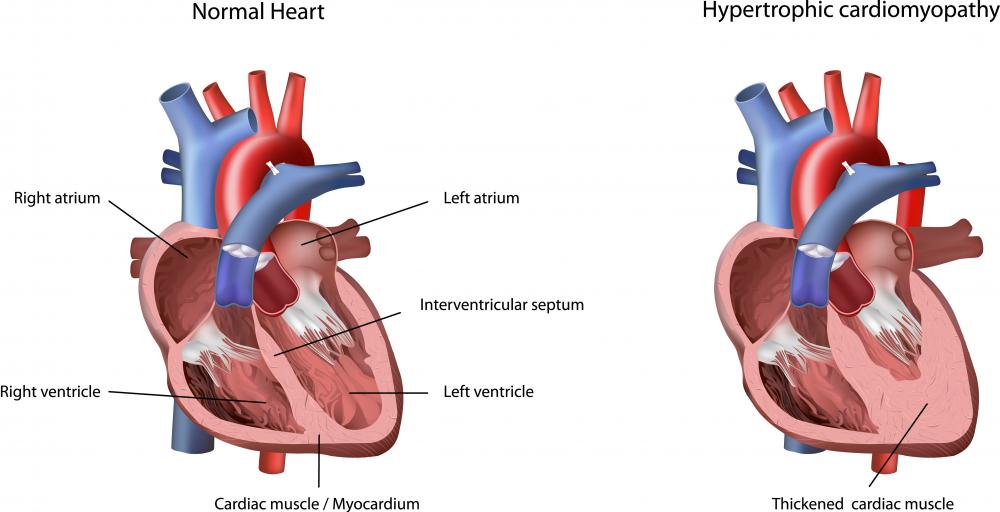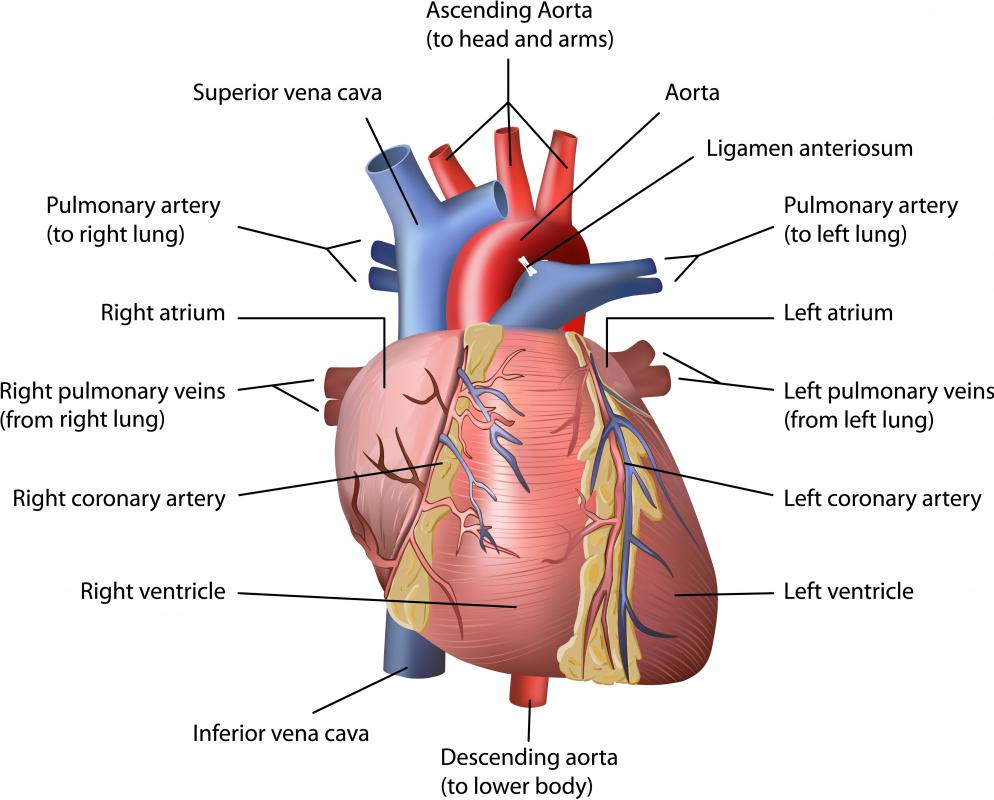At TheHealthBoard, we're committed to delivering accurate, trustworthy information. Our expert-authored content is rigorously fact-checked and sourced from credible authorities. Discover how we uphold the highest standards in providing you with reliable knowledge.
What is Alcohol Ablation?
Alcohol ablation, or alcohol septal ablation, generally refers to a medical procedure frequently used to treat hypertophic cardiomyopathy, whereby physicians inject alcohol into a specific area through a vein in order to shrink and destroy tissue. Cardiac specialists generally perform the procedure in a catheterization lab while the patient is mildly sedated. Physicians only perform the minimally invasive treatment based on certain patient criteria, which include patients who do not obtain symptomatic relief from medications.
Once taken to the catheterization lab, patients typically receive a mild sedative for relaxation. Physicians also use a local anesthetic at the inguinal crease insertion site, the area between the upper thigh and the lower abdomen. A cardiologist usually makes a small incision to gain access to the large vein located in this region. Through this vein, the physician threads a catheter, guidewire and balloon toward the heart. The physician also generally injects the vein with an anticoagulant medication.

Before performing the actual alcohol ablation, the physician might insert a temporary pacemaker into the heart in order to maintain a correct heart rhythm. After the catheter arrives at the left anterior, descending cardiac artery, the cardiologist typically inserts and inflates a miniature balloon, which walls off the location. Following balloon placement the cardiologist injects a media contrast dye, detectable by an echocardiograph. The media provides visualization of the area and the blood vessels along with ensuring proper catheter placement and ensuring the balloon does not allow backflow.

While monitoring the heart’s pumping action and rhythm, the cardiologist injects denatured ethanol, 1 milliliter at a time. The alcohol generally begins to destroy the enlarged tissue immediately, shrinking the biological tissue over a period of time. As the tissue dies, the action may cause a mild heart attack. The tissue destruction might also cause permanent heart block, as part of the tissue normally conducts the heart’s electrical impulses. In this instance, the physician will insert a permanent pacemaker.

In the event the arterial branches incur blockage, preventing catheterization, a cardiac surgeon might perform open-heart septal myectomy, involving actual tissue removal. Instead of performing alcohol ablation, a surgeon cuts away part of the enlarged septal wall to improve blood flow through and out of the heart.
Hypertrophic obstructive cardiomyopathy occurs when the wall between the ventricles, or the septum, thickens and stiffens. This eventually prevents the heart from pumping effectively and depending on the severity of the thickening, may prevent normal blood flow. Physicians perform alcohol ablation as a means of minimizing the obstructive tissue and enhancing blood circulation. Patients scheduled to undergo alcohol ablation require hospitalization, not only for the procedure itself, but also for post treatment monitoring.
AS FEATURED ON:
AS FEATURED ON:















Discuss this Article
Post your comments